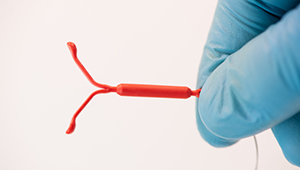Laura E. Ichikawa, MS
Biography
With more than 25 years at Kaiser Permanente Washington Health Research Institute (KPWHRI), Laura Ichikawa, MS, is known for her analytical skills, attention to detail regarding study design and data management, and knowledge in data visualization. Her experience includes observational studies, randomized controlled trials, case-control studies, and multisite analyses.
Laura is primarily focused on cancer research and women’s health. She’s has been involved with the Statistical Coordinating Center for the Breast Cancer Surveillance Consortium (BCSC), funded by the National Cancer Institute. She leads both data management activities and statistical analyses for the BCSC, where much of her work has been evaluating mammography performance for both screening and surveillance while also examining use of screening MRI (magnetic resonance imaging) and ultrasound. Laura also participated in collaborative research through the Cancer Research Network, including a widely publicized 2004 study that linked not having screening mammograms to late-stage breast cancer and, more recently, the Population-based Research to Optimize the Screening Process (PROSPR) project focusing on colorectal cancer screening. She is excited to continue her work in cancer research, including in screening, treatment, surveillance, and survival.
Laura’s earlier research with retired KPWHRI Senior Investigator Delia Scholes, PhD, included studies examining bone loss associated with the injectable hormonal contraceptive Depo-Provera in 2002 and 2005 and oral contraceptives in 2011.
Laura is a member of the American Statistical Association and its Puget Sound chapter.
Research interests and experience
-
Biostatistics
Longitudinal data analysis
-
Cancer
Biostatistics; breast cancer
-
Women's Health
Biostatistics; hormonal contraception and bone density
Recent publications
Yankaskas BC, Taplin SH, Ichikawa L, Geller BM, Rosenberg RD, Carney PA, Kerlikowske K, Ballard-Barbash R, Cutter GR, Barlow WE. Association between mammography timing and measures of screening performance in the United States. Radiology. 2005;234(2):363-73. PubMed
Scholes D, LaCroix AZ, Ichikawa LE, Barlow WE, Ott SM. Change in bone mineral density among adolescent women using and discontinuing depot medroxyprogesterone acetate contraception. Arch Pediatr Adolesc Med. 2005;159(2):139-44. PubMed
Taplin SH, Ichikawa L, Yood MU, Manos MM, Geiger AM, Weinmann S, Gilbert J, Mouchawar J, Leyden WA, Altaras R, Beverly RK, Casso D, Westbrook EO, Bischoff K, Zapka JG, Barlow WE. Reason for late-stage breast cancer: absence of screening or detection, or breakdown in follow-up? J Natl Cancer Inst. 2004;96(20):1518-27. PubMed
Scholes D, LaCroix AZ, Ichikawa LE, Barlow WE, Ott SM. The association between depot medroxyprogesterone acetate contraception and bone mineral density in adolescent women. Contraception. 2004;69(2):99-104. PubMed
Taplin SH, Ichikawa L, Buist DS, Seger D, White E. Evaluating organized breast cancer screening implementation: the prevention of late-stage disease? Cancer Epidemiol Biomarkers Prev. 2004;13(2):225-34. PubMed
Reed SD, Scholes D, LaCroix AZ, Ichikawa LE, Barlow WE, Ott SM. Longitudinal changes in bone density in relation to oral contraceptive use. Contraception. 2003;68(3):177-82. PubMed
Scholes D, McBride CM, Grothaus L, Civic D, Ichikawa LE, Fish LJ, Yarnall KS. A tailored minimal self-help intervention to promote condom use in young women: results from a randomized trial. AIDS. 2003;17(10):1547-1556. PubMed
Ott SM, LaCroix AZ, Ichikawa LE, Scholes D, Barlow WE. Effect of low-dose thiazide diuretics on plasma lipids: results from a double-blind, randomized clinical trial in older men and women. J Am Geriatr Soc. 2003;51(3):340-347. PubMed
Civic D, Scholes D, Ichikawa L, Grothaus L, McBride CM, Yarnall KS, Fish L. Ineffective use of condoms among young women in managed care. AIDS Care. 2002;14(6):779-788. PubMed
Scholes D, LaCroix AZ, Ichikawa LE, Barlow WE, Ott SM. Injectable hormone contraception and bone density: results from a prospective study. Epidemiology. 2002;13(5):581-7. PubMed
Research

Study measures risks of screening colonoscopies for older adults
The findings can help guide colorectal cancer screening decisions later in life.
Research

IUD perforation: Rare but important to know about
New study results in more precise language in the federally mandated warning about this possibility.
cancer research

Using breast MRI after cancer may lead to unneeded biopsies
A Kaiser Permanente-led BCSC study is among the largest ever to evaluate adding MRI surveillance for breast cancer survivors.
cancer screening

No need to follow up simple ovarian cysts
New KPWHRI study shows that women with simple cysts are not at increased risk of ovarian cancer.



